Threats to the bar activities have reached an unprecedented level – the Committee on Protection of Advocates’ Rights


The Committee on Protection of Advocates’ Professional Rights and Guarantees held a round table on “Practical aspects of the law enforcement in criminal process”.
During the discussion the participants have considered the differences between the notion of “information entered to the Unified Register of Pre-Trial Investigations” and the circumstances to be investigated, as well as the practice of unreasonable suspicion and responsibility for the consequential violation of human rights. The reason for holding such discussions was the appeals of the advocates to the Committee in connection with the opening of criminal proceedings against them with the said violations of criminal procedure law.
“The situation around the bar is stalemate and threatens the national security. The main foundation for the protection of human rights, namely, the bar institute, is being destroyed”, — said Hanna Boriak, the Head of the Committee on Protection of Advocates’ Professional Rights and Guarantees.
Advocate Vitalii Serdiuk has also assessed the situation as a “threat to the human rights institution by implementing intentional systemic actions to eradicate the bar institute as a whole”. He stressed that the basis for such assessments is the systematic work of a number of governmental institutions. With regard to the above mentioned, the main violators of the defenders’ professional rights are the Prosecutor General’s Office and the NABU, the Ministry of Internal Affairs and other law enforcement agencies, which demonstrate a record number of violations of the advocates’ rights.
By way of example Vitalii Serdiuk mentioned complete disregard of the advocates’ rights and guarantees, cases of physical pressure on advocates, and killing of advocates that are not being investigated.
“Even in case of Hrabovskyi, which is the only one sent to the court, there are no answers to the unexplored facts of this case. Everyone who follows it has the feeling that they are either trying not all or trying the wrong”, — said the advocate. He also cited the cases of assassination attempt against the advocates, death threats, assault and battery during investigative actions, which have no reaction and which are not even entered into the Unified Register of Pre-Trial Investigations.
Separately, Vitalii Serdiuk named the identification of an advocate with a client that is prohibited by law. “The advocate is always perceived as a criminal, and this is done by the law enforcement officials since it is beneficial to do so in the eyes of society and court”, —he said. Moreover, the practice of making public statements about the aforementioned transformed into the opening of criminal proceedings against the advocates as related to the cases of their clients.
“Concerning the advocates, the law enforcement officers, grossly abusing their official duties, make statements and fabricate proceedings in order to exert pressure on advocates. There are many such cases”, — says Vitalii Serdiuk.
The answer to such a situation, at his suggestion, should be both an introduction of amendments to the law and consolidated efforts of the bar to defend the profession. It refers to expanding the composition of the UNBA Committee on Protection of Advocates’ Professional Rights and Guarantees, lobbying for legislative changes through people's deputies practicing the law and through public pressure, and attracting the attention of society and international partners to unlawful pressure on the bar. At the practical level, he advised to create tactical response teams that would help the advocates in need of assistance during violation of their rights, and supported the idea of the advocates’ strike.
During the round table, the peculiarities of entering information to the Unified Register of Pre-Trial Investigations were discussed. Hanna Boriak emphasized that, instead of the information, the circumstances that must be established during the investigation are often entered to the register. On the other hand, it is extremely difficult to enter information on crimes pertaining to violations of the advocates’ rights. During the discussion advocate Yurii Hryhorenko noted that there is not a single guilty verdict in cases of interference with the advocate’s activity.
Advocate Diana Nazarenko called the application of Article 214 of the CPC an opportunity for pressure from law enforcement agencies, provided that the subjective interpretation of the provisions of this article is admissible. In their Resolution the round table participants called for the unconditional implementation of this Article of the CPC, which will increase the possibilities to protect the citizens and will reduce the burden on courts, if the citizens demand to enter information to the Unified Register of Pre-Trial Investigations under the court decision.
The second topic of the round table was devoted to the practice of serving unreasonable suspicion, including in cases initiated against the advocates. With regard to the aforementioned advocate Oleh Klymenko reminded that the practice of the European Court of Human Rights provides that the unreasonable suspicions are a violation of the right to protection. An example of criminal proceeding initiation based on the unreasonable suspicion is the case against advocate Cheberdin, which contains no information about the time, place and the actual commission of the unlawful acts. Hanna Boriak stated that the justification of the suspicion should be verified by court, but the relation of this concept to the concept of the legal components of the crime is not practiced during such assessments.
“The text says that the conclusion about the legal components of the crime cannot be made, but it is passed to the investigating judges, and nobody bears responsibility for the said”, — emphasized Hanna Boriak. In this context advocate Yurii Hryhorenko pointed out that, while continuing the preventive measures applied on the basis of such suspicion, the prosecution party should justify the risks that have been taken into account when adopting the first court decision. “When choosing a preventive measure and when the preventive measure is prolonged, the judges turn a blind eye to the fact that the suspicion is not substantiated. As long as the investigating judges do so, the situation will not change”, — said the advocate.
Advocate Diana Nazarenko considers the appeal to the ECHR to be the way to prosecute such actions, since there are no effective measures in Ukrainian legislation. The advocate can file complaints about wrongful acts, apply to the qualification commission of prosecutors or judges, as well as file a statement about committing criminal offenses through abuse of authority. “The notice of suspicion should be supported by proper and admissible evidence, and be served within the limits of the law”, — stated Diana Nazarenko.
According to Hanna Boriak, the mechanism of responsibility for serving unreasonable suspicion may be the petition to close the proceeding with a view to the lack of information about the legal components of the criminal offense, filed to the pre-trial investigation body or the court.
“This practice works today. And when the judge does not make a decision, I appeal to the qualification commission of judges”, — said the Head of the Committee, referring to her own practice of law. The NSDC representative Serhii Shepetko added that the mechanism for counteracting such practices could be the introduction of amendments to the CPC, which would allow challenging the validity of the suspicion.
The relevant paragraph, proposing to prevent serving of the unreasonable suspicions and clarifying the meaning of the concept of reasonable suspicion, was included in the round table Resolution.
The text of the Resolution will be sent by the UNBA Committee to the law enforcement agencies to clarify the content of the advocates’ rights and guarantees.Popular news
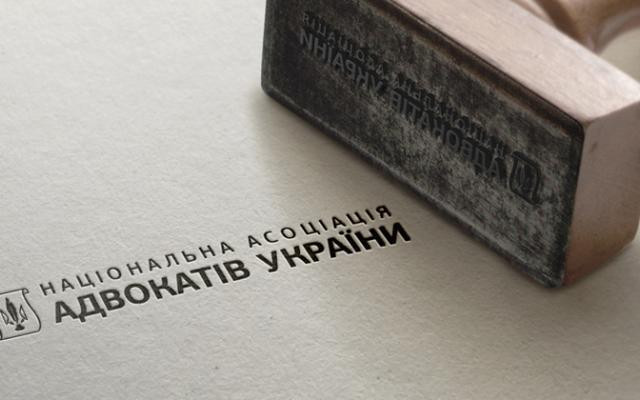
Self-government
The BCU demands a review of the composition of the government working group on reforming the advocacy profession
The President of the UNBA, BCU Lidiya Izovitova, appealed to the Cabinet of Ministers of Ukraine to review the composition of the working group on improving legislation in the field of advocacy and legal practice.

Discussion
Why lowering the age of marriage lacks legal logic
Although until 2012 there was a provision in family law that allowed children to marry from the age of 14 under certain circumstances, its return to Ukrainian law would contradict international obligations and the logic of criminal law.
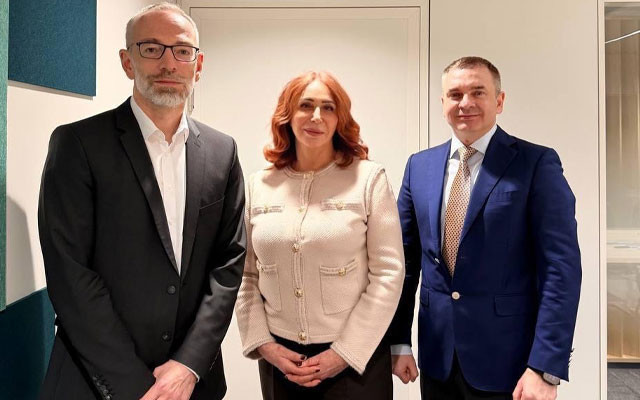
European integration
Open dialogue between the UNBA and the European Commission on the path to EU
The Ukrainian National Bar Association held a working meeting in Brussels with Mr Wolfgang Nozar, Head of Unit for Governance, Rule of Law and Financial Assistance, Directorate-General for Enlargement and Eastern Neighbourhood (DG ENEST), European Commission.

Self-government
A report on Ukrainian advocacy was presented in the European Parliament
Can a shadow report on advocacy replace the political framework of the Roadmap on the rule of law with demands for the restructuring of self-government? Where is the line between accountability and the seizure of institutions? And how can we respond to narratives with data rather than impressions?
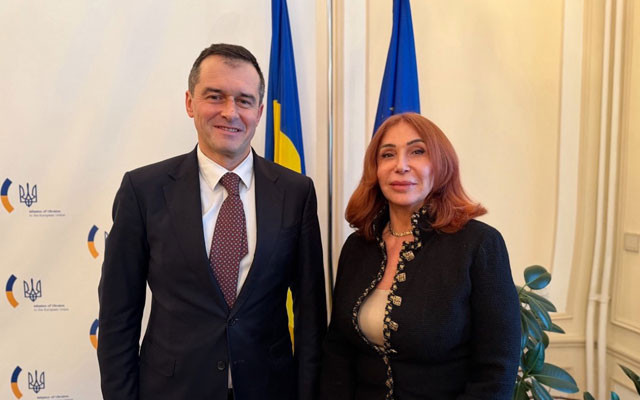
European integration
UNBA and Ukraine's representation to the EU have synchronized their priorities
On February 5, in Brussels, the President of the UNBA, BCU Lidiya Izovitova held a working meeting with the Ambassador Extraordinary and Plenipotentiary of Ukraine, Representative of Ukraine to the European Union Vsevolod Chentsov.
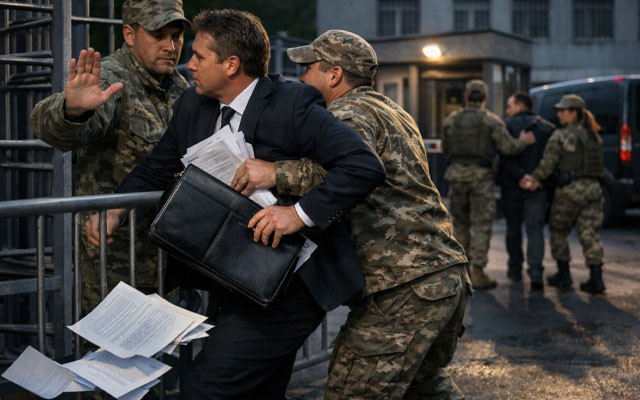
Guarantees of the practice of law
Proceedings opened following attack on advocate in Dnipro
The Committee for the protection of advocates' rights and guarantees of legal practice of the UNBA appealed to law enforcement agencies in connection with an advocate's report of an attack while performing his professional duties. The information was entered into the Unified Register of Pre-trial Investigations and a pre-trial investigation was initiated.
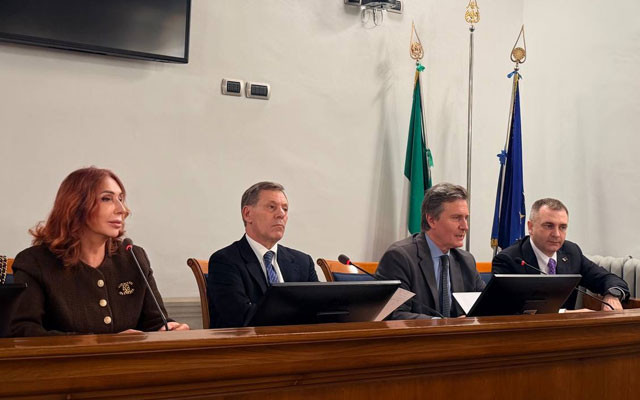
Interaction
«With us — to Europe»: Italian advocacy supports UNBA initiatives
On January 30, a meeting was held in Rome between a delegation from the Ukrainian National Bar Association and the National Bar Council of Italy (Consiglio Nazionale Forense, CNF) on the standards and practices of the legal profession and their significance for Ukraine's European integration process.
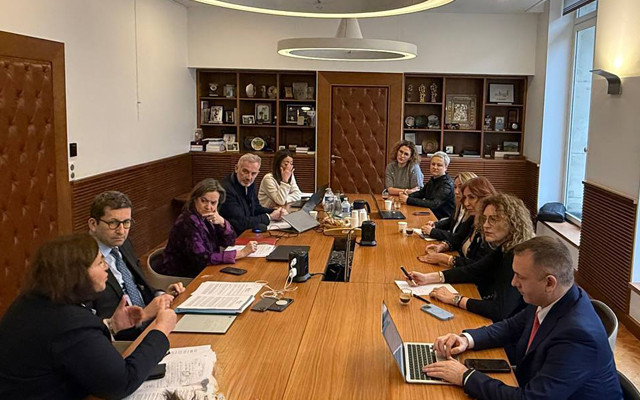
Interaction
France confirms cooperation with UNBA on reforms in the field of the rule of law
On January 29, a working meeting between representatives of the Ukrainian National Bar Association and the French National Bar Council (Conseil National des Barreaux, CNB) took place in Paris.
Publications

Volodymyr Matsko Extradition as a systemic form of rights violations

Victoria Yakusha, Law and Business The anti-corruption vertical cannot «take care» of the Bar as an institution, - acting head of the HQDCB

Censor.net Protecting advocates – protecting justice: addressing concerns about the new law

Ihor Kolesnykov A BRIEF SUMMARY REGARDING THE APPLICATION OF THE ORDER ON EXTENDED CONFISCATION IN LATVIA REGARDING FINANCIAL ASSETS OF…

Valentyn Gvozdiy WORKING IN A WAR ZONE

Lydia Izovitova Formula of perfection

Sergiy Vylkov Our judicial system is so built that courts do not trust advocates

Iryna Vasylyk Advocacy in the proclamation of Independence of Ukraine
